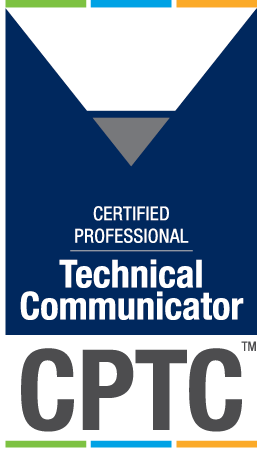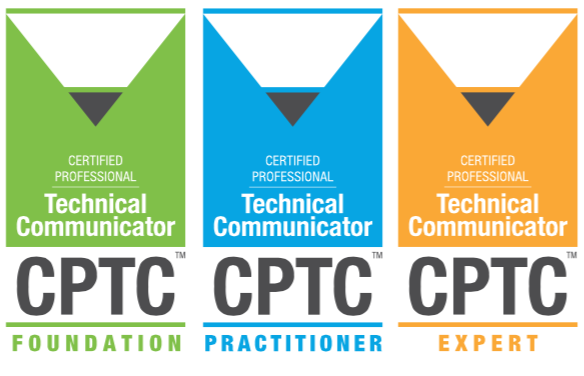By MaryKay Grueneberg | STC Associate Fellow
If you don’t think CPTC certification is right for you, you may want to think again.
 When I first heard about certification a couple of years ago, my initial thought was “oh, that’s for young college grads, that’s certainly not for someone who has over 30 years of experience in the tech comm field.” And I promptly forgot about it. Then, last Spring at the Summit, I attended the info session on becoming a Certified Professional Technical Communicator. I wanted to know what all the fuss was about. I have to admit, after the session, I was still a little on the fence, but I was definitely more intrigued. The thing I really liked was that it is not a “one and done” thing. You don’t just take a test and then go on as you did before. Getting your certification (Foundation level) means you have demonstrated both knowledge and understanding of the best practices in technical communication. Keeping your certification means that you complete specific continuing education requirements, showing that you continue to stay current. The more I thought about that concept, the more excited I got about getting certified.
When I first heard about certification a couple of years ago, my initial thought was “oh, that’s for young college grads, that’s certainly not for someone who has over 30 years of experience in the tech comm field.” And I promptly forgot about it. Then, last Spring at the Summit, I attended the info session on becoming a Certified Professional Technical Communicator. I wanted to know what all the fuss was about. I have to admit, after the session, I was still a little on the fence, but I was definitely more intrigued. The thing I really liked was that it is not a “one and done” thing. You don’t just take a test and then go on as you did before. Getting your certification (Foundation level) means you have demonstrated both knowledge and understanding of the best practices in technical communication. Keeping your certification means that you complete specific continuing education requirements, showing that you continue to stay current. The more I thought about that concept, the more excited I got about getting certified.
After the Summit ended, a group of us got together through Slack and starting working through the book on which the certification test questions are based. While it was fun and helpful to be able to ask others questions and work through the sample questions together, I am not patient enough to take things slowly, so I completed my studies on my own and passed the test at the end of June. But then I thought “Well, I’m certified. Now what? I already have a full-time job, so what good is this?” And then it happened….
Just one month later, I was told that my department was getting reorganized and my position had become “redundant.” I had just 30 days to find and secure a position inside the company or be without a job altogether. I work for a very large, global company, but still there were no openings in the United States. I had to get creative. So, I reached out to every hiring manager literally across the globe. As I talked with them, they asked about my involvement with STC and about the CPTC. They all commented on the fact that I had taken initiative with my continuing education and noted that no one else had certification. I was told, “With credentials and experience like yours, we can’t afford to let you go. We will find you something.” And they did. They actually created a position for me. During the discussions surrounding the details, I was asked at what level I was at in the company and I told them. They said that didn’t seem right “considering your professional credentials and experience.” I agreed. In the end, I not only ended up with a new position within the 30 days, I also got a promotion to boot.
So, if you don’t think certification is for you, just remember this: degrees and certificates in your chosen field are good. Certification is better. Degrees get stale, the educational content gets outdated. Certification, however, ensures that you are always staying current with technology, communication trends, and best practices. Certification shows you are invested. And sometimes, when you least expect it, that may just make all the difference!



